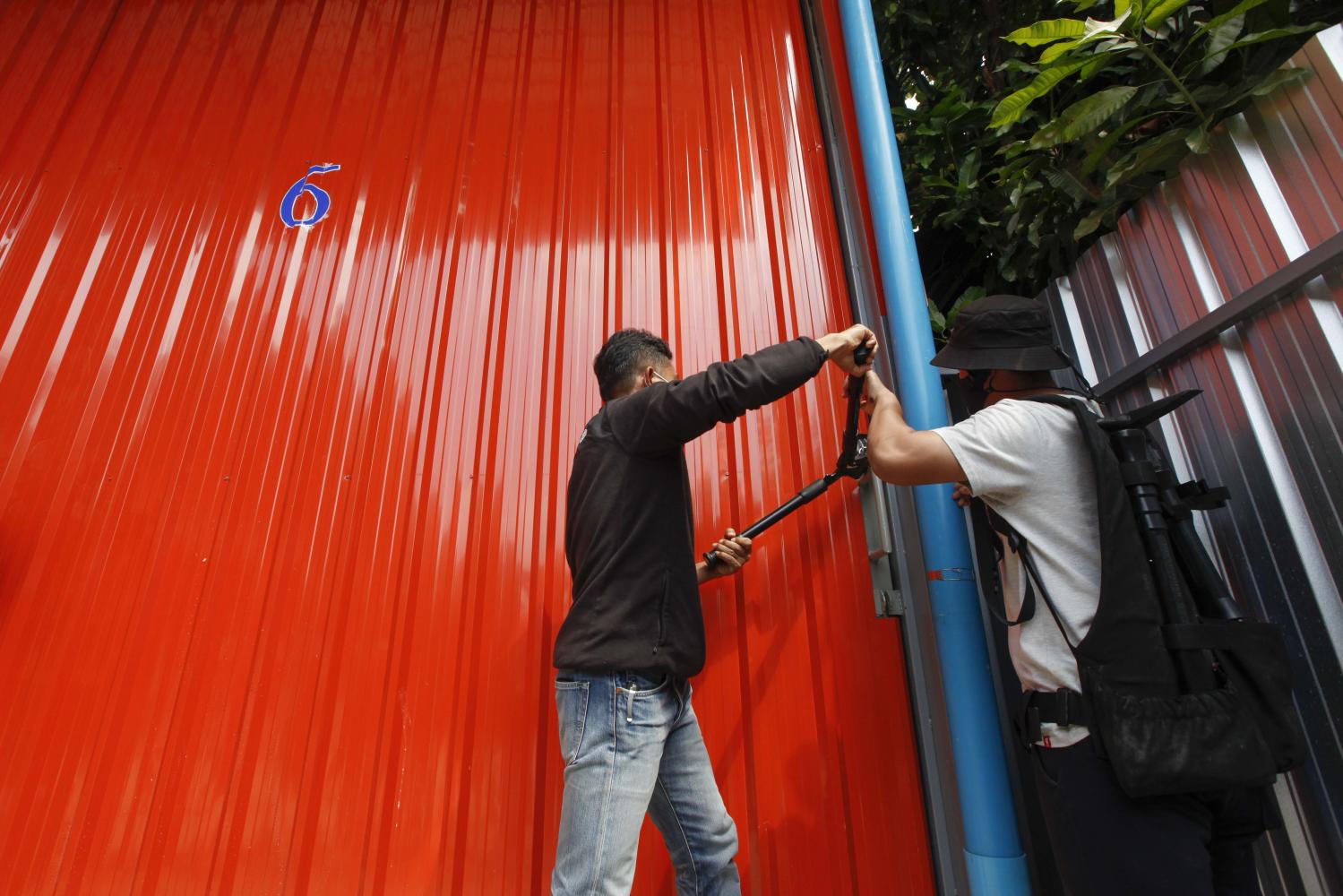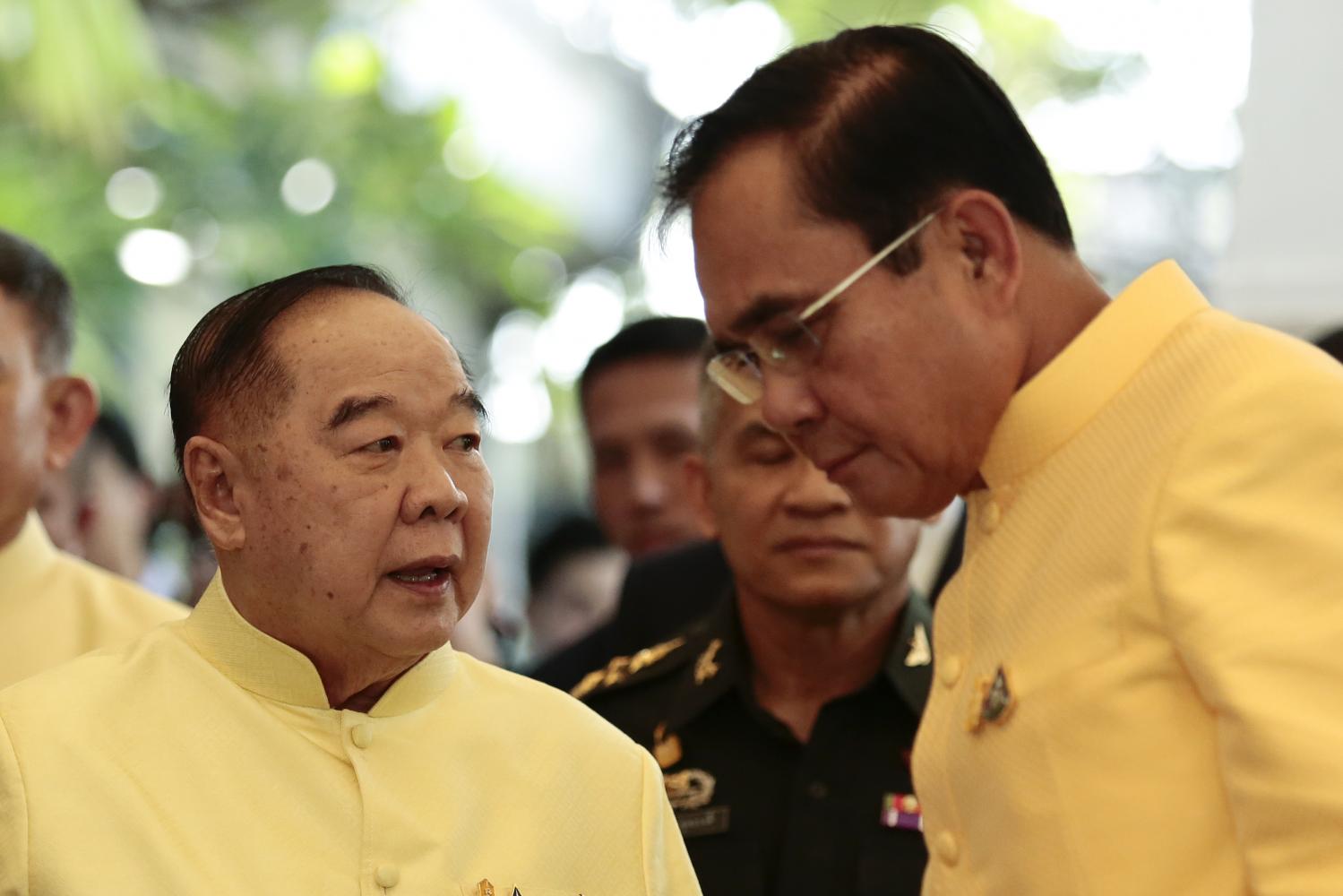Showing 1 - 10 of 26
Thai political legitimacy in question
Oped, Thitinan Pongsudhirak, Published on 28/07/2023
» The ongoing distortion of election results and systematic subversion of the popular will in Thai politics raise questions of political legitimacy at home and abroad. By all accounts, the combined victory of the opposition Move Forward Party (MFP) and Pheu Thai appears unlikely to lead to their formation of a government. While many voters feel shortchanged by the power plays behind the scenes, what is happening to the MFP should behove the international community to draw a red line across which the eventual government outcome cannot be deemed democratically legitimate and credible in reflection of voter preferences.
The anatomy of waning youth protests
Oped, Thitinan Pongsudhirak, Published on 19/03/2021
» By all accounts, Thailand's youth protest movement over the past year has lost steam. Its key leaders have been charged on anti-monarchy grounds and jailed without bail, while the rank-and-file are demoralised, still on the move but in thin numbers. On the other side, the incumbent centres of power have reasserted control and put down what at its peak was the most vociferous and vigorous anti-establishment movement Thailand had seen in decades.
Corruption without a moral backstop
Oped, Thitinan Pongsudhirak, Published on 15/01/2021
» For Thailand, Covid-19 has become an unwitting spotlight that has exposed shadowy closets and drawers where corruption and graft have long festered. In the past, Thailand's dirty deeds and illegal wrongdoings operated within certain parameters set by a semblance of moral authority at the top echelons of Thai society. But in recent years, moral turpitude has set in while the sense of moral backstop has faded. As this trend intensifies, Thailand risks suffering political decay, social decadence and economic stagnation, while impunity and immorality reign without boundaries.
The 'salim' phenomenon in Thai politics
Oped, Thitinan Pongsudhirak, Published on 18/12/2020
» Few phenomena explain and underpin Thai politics more than the rise and decline of what is known pejoratively these days as salim, a metaphorical variation of salim, a Thai dessert comprising multi-coloured thin noodles served in coconut milk with crushed ice. Once socially attractive and politically fashionable, salim have gone out of vogue, looked down upon in a new era of anti-establishment protest for pro-democracy reforms under the new reign. What becomes of these pro-military royalist-conservative salim will have much to say about what will happen to Thailand's political future.
Thai political order being contested
Oped, Thitinan Pongsudhirak, Published on 21/08/2020
» It has happened every time in contemporary Thai politics since the 1970s. When genuine dissent takes place against the established political order, incumbent centres of power strike back with all the means at their disposal. Each time in the past, they prevailed. This time, as political storm clouds gather again, similar campaigns and tactics are in motion to suppress dissent. Yet the final outcome may be profoundly different compared to the past.
Is the Indo-Pacific eclipsing Asia-Pacific?
News, Thitinan Pongsudhirak, Published on 02/08/2019
» Thailand and the smaller states in its neighbourhood will miss the Asia-Pacific era. It is not as if the Asia-Pacific has gone away or disappeared in any sense. But its role as a cradle of prosperity linking larger and small economies around the Pacific Rim may have passed its peak. In its place is the Indo-Pacific, which thus far lacks a trade-liberalisation and economic growth component so integral to the Asia-Pacific.
5 years backwards under military rule
News, Thitinan Pongsudhirak, Published on 24/05/2019
» Now that five years have elapsed since Thailand's last military coup, it is an opportune juncture to take stock of where the country is heading. When it seized power in May 2014, the military junta, known as the National Council for Peace and Order, initially had legitimacy from royal ascent and broad approval from its restoration of stability and order after more than half a year of street protests in Bangkok by the People's Democratic Reform Committee that was intent on overthrowing the Pheu Thai government.
Woeful Senate will worsen political woes
News, Thitinan Pongsudhirak, Published on 10/05/2019
» Since it first took office in 1947, Thailand's Senate has mostly comprised appointees as mandated by more than a dozen constitutions over the past seven decades. Only in the 1997 and 2007 charters was the Senate elected and half elected, respectively. The 2017 constitution has reverted to a wholly appointed upper chamber but this time the 250-member Senate has been given wider authority, particularly the selection of the prime minister.
Election augurs end of the Thaksin era
News, Thitinan Pongsudhirak, Published on 05/04/2019
» It could have happened in August 2001, but Thailand has taken nearly two wasted decades to see the back of Thaksin Shinawatra.
The anatomy of a very tricky election
News, Thitinan Pongsudhirak, Published on 29/03/2019
» Thailand's first election in nearly eight years was supposed to bring some closure to a self-appointed military government and clarity to the country's democratic future. Instead, it has generated much controversy and probable continuity for the incumbent military regime with murky political directions ahead. Central to the questions and outcomes surrounding the poll on Sunday is the Election Commission (EC). Its actions and interpretations of events will have much to say about what happens next.












